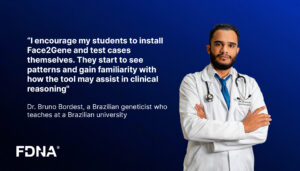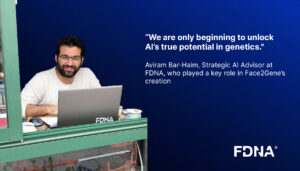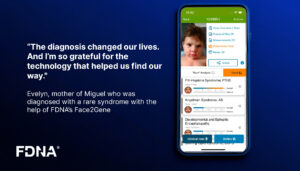January 9, 2017
The NVIDIA Technical Blog discusses a novel application of AI technology that uses facial recognition to help identify rare diseases from a simple selfie. This cutting-edge decision support tool analyzes facial features to detect subtle patterns associated with various genetic conditions. By leveraging deep learning algorithms and large datasets, this AI-driven solution offers healthcare professionals a quick and non-invasive method for early diagnosis of rare diseases. The article highlights the development process, the collaboration with leading medical institutes, and the potential impact on improving patient care and outcomes through more accurate and timely diagnoses.


